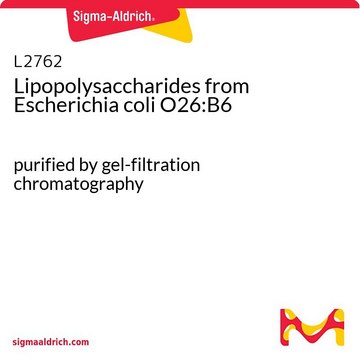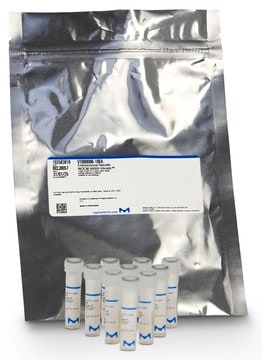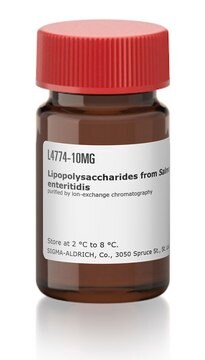L4268
Lipopolysaccharides from Klebsiella pneumoniae
purified by phenol extraction
Synonyme(s) :
LPS
About This Item
Produits recommandés
Source biologique
bacterial (Klebsiella pneumoniae)
Niveau de qualité
Forme
lyophilized powder
Produit purifié par
phenol extraction
Impuretés
<3% Protein (Lowry)
Couleur
white to faint yellow
Solubilité
water: 4.90-5.10 mg/mL, slightly hazy to turbid, colorless to faintly yellow
Conditions d'expédition
ambient
Température de stockage
2-8°C
Vous recherchez des produits similaires ? Visite Guide de comparaison des produits
Description générale
Actions biochimiques/physiologiques
Notes préparatoires
Autres remarques
Code de la classe de stockage
11 - Combustible Solids
Classe de danger pour l'eau (WGK)
WGK 3
Point d'éclair (°F)
Not applicable
Point d'éclair (°C)
Not applicable
Équipement de protection individuelle
Eyeshields, Gloves, type N95 (US)
Certificats d'analyse (COA)
Recherchez un Certificats d'analyse (COA) en saisissant le numéro de lot du produit. Les numéros de lot figurent sur l'étiquette du produit après les mots "Lot" ou "Batch".
Déjà en possession de ce produit ?
Retrouvez la documentation relative aux produits que vous avez récemment achetés dans la Bibliothèque de documents.
Les clients ont également consulté
Notre équipe de scientifiques dispose d'une expérience dans tous les secteurs de la recherche, notamment en sciences de la vie, science des matériaux, synthèse chimique, chromatographie, analyse et dans de nombreux autres domaines..
Contacter notre Service technique


